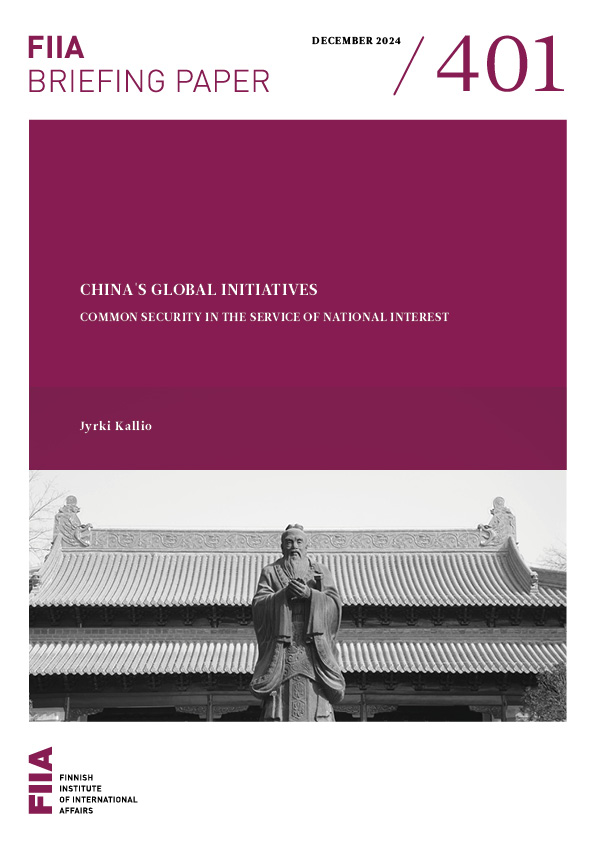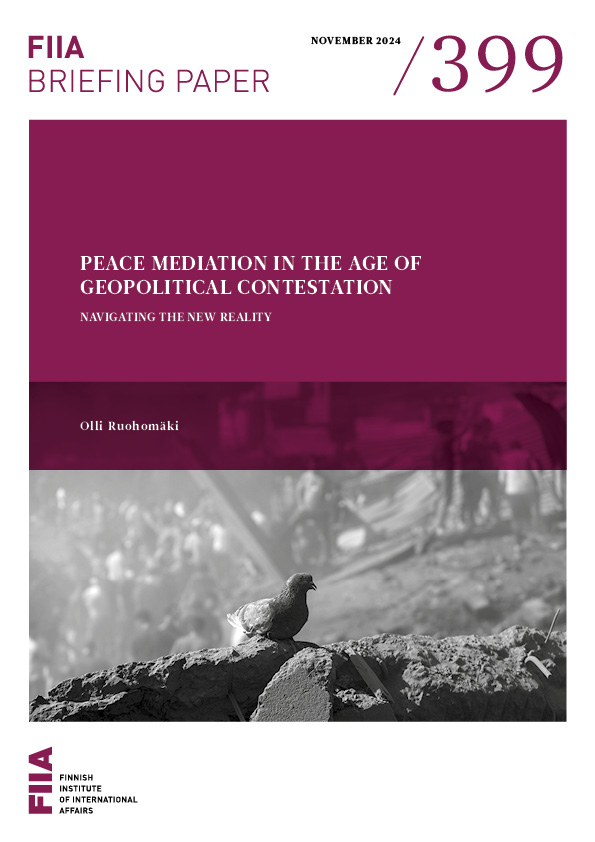Finland is currently drafting a comprehensive national crisis management strategy (CNCM). This briefing paper puts this exercise in conversation with the increase in violence directed at aid workers in crisis situations, with special reference to Afghanistan. On a policy level, Finnish decision makers should take into consideration the changing security environment and the mosaic of actors involved in crisis management.
It is argued that increased integration and coordination has complicated aid agencies’ attempts to maintain neutrality in the field. Neutrality, together with impartiality and independence, functions to create a “humanitarian space” in conflict zones. It is precisely this space that is most at risk when humanitarian actors are coupled with military and state apparatuses.
The aim of integration and coordination is to improve the responsiveness, effectiveness, and efficiency of humanitarian relief and crisis response. It involves coordination and cooperation in the planning and use of military and civil defense assets in humanitarian operations.
Despite the potential for efficiency gains, integration remains a controversial topic. In particular, it forces tough questions on aid agencies who find their ability to remain neutral, impartial, and independent severely curtailed. There is concern in the humanitarian sector that coherence and integration mean subordinating principles to politics and that this has made aid agencies targets of violence. In Afghanistan and elsewhere, rising violence testifies to an environment in which aid agencies are now perceived as taking sides in conflict.
The increase in violence in crisis situations calls attention in drafting the CNCM to the fragility of humanitarian space and the need for open, public debate. Given Finland’s experiences with neutrality during the Cold War and in light of contemporary debates over Afghanistan, there is the opportunity to bring deeper understandings to bear in the field of crisis management.





